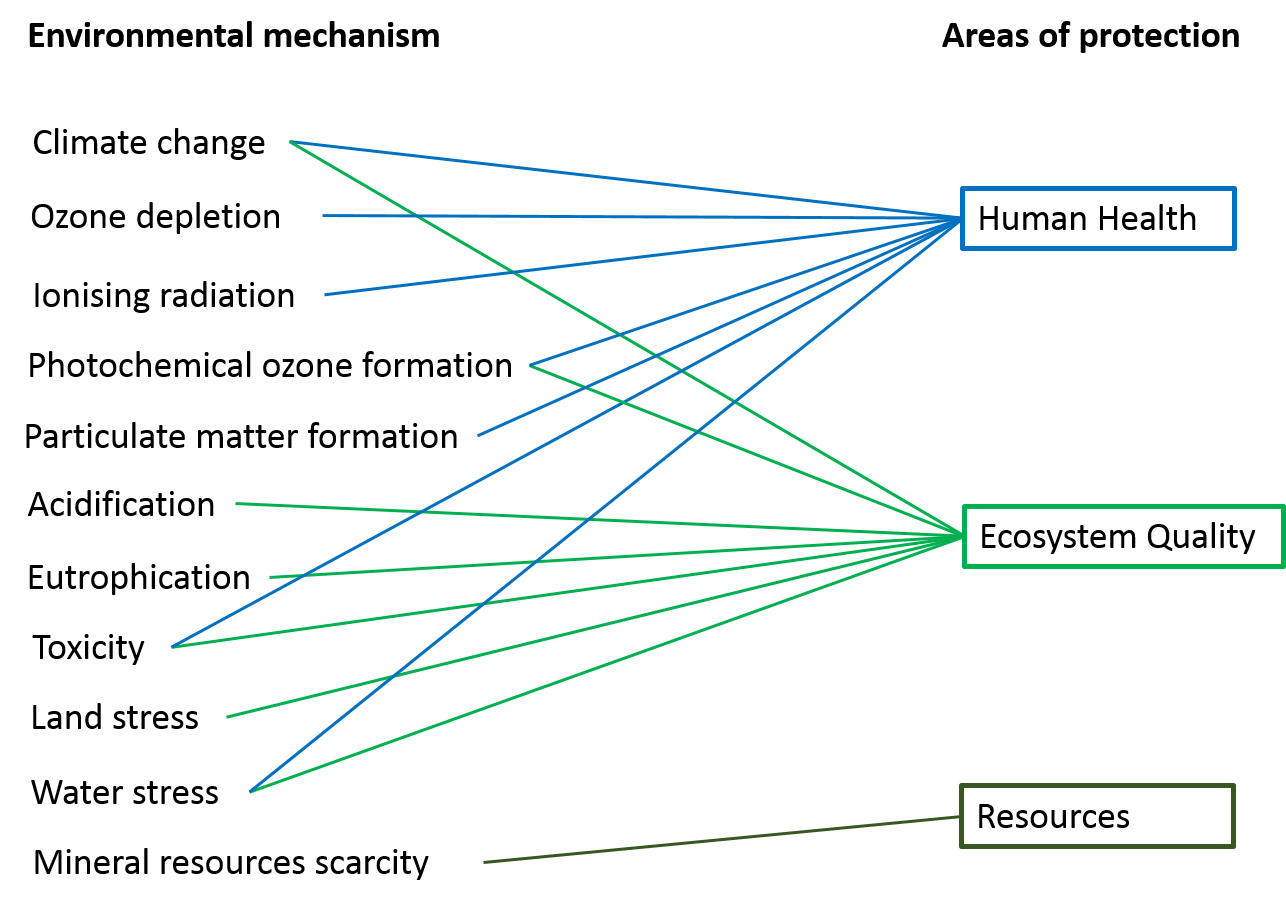Life cycle impact assessment (LCIA) aims at understanding and quantifying the magnitude and significance of the potential environmental impacts of a product or a service throughout its entire life cycle. Understanding these impacts is the first step in prevention, reduction and remediation actions.
Several LCIA methods have been developed, but the European Commission identified a number of key aspects that needed further improvement, namely:
- The methods available for some impact categories were judged to be immature
- Some impact pathways were not yet covered (e.g., water use)
- For impact categories where the impacts caused are location specific there was lack of consistent spatially differentiated factors
- Quantitative information on various sources of uncertainty in life cycle impact assessment methods and corresponding factors was lacking
The LC-IMPACT methodology has been developed to fill in this gap. It is the aim of the LC-IMPACT methodology to provide a global life cycle impact assessment methodology for the three main areas of protection (human health, ecosystem quality, resources), including spatially differentiated information wherever necessary and feasible. The report on the LC-IMPACTmethodology version 0.5 can be downloaded here. The main work of this harmonized methodology results from the outcomes of the FP7-funded project LC-IMPACT.


